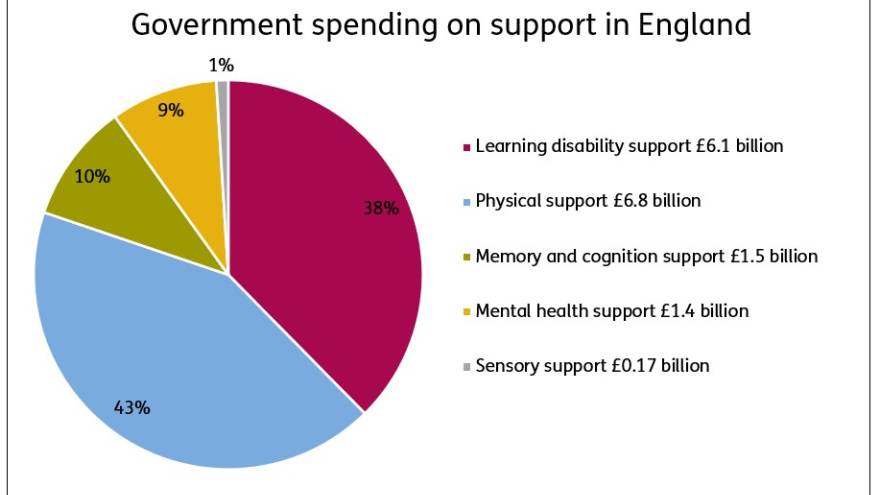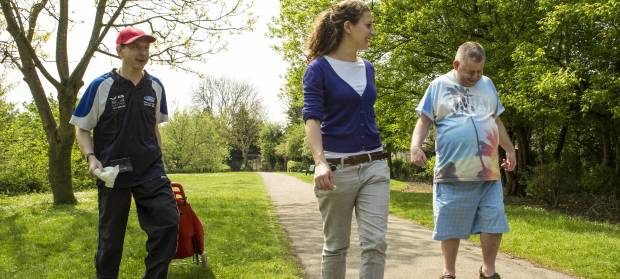What is social care?
Social care
 Social care means the services that give care and support to people who need it.
can mean support that ranges from a few hours of a week to 24-hours-a-day.
Social care means the services that give care and support to people who need it.
can mean support that ranges from a few hours of a week to 24-hours-a-day.
Over 1 million adults in England accessed long-term or short-term social care support in England in 2019/20. For 155,400 of these adults, a
learning disability
 A learning disability is to do with the way someone's brain works. It makes it harder for someone to learn, understand or do things.
was the main reason they needed support.
A learning disability is to do with the way someone's brain works. It makes it harder for someone to learn, understand or do things.
was the main reason they needed support.
Of these adults:
- approximately 153,145 accessed long-term support.
- approximately 2,255 completed short-term support designed to maximise their
independence
 Independence means doing things on your own. Making your own choices.
(NHS Digital 2020).
Independence means doing things on your own. Making your own choices.
(NHS Digital 2020).
Social care can be very important in helping people with a learning disability to live their life in the way they choose, like anyone else.
Support can be many things, including supporting somebody to get up and get dressed, to develop friendships and
relationships
 Relationships are about the people in your life. You might have different types of relationships like friendships, family relationships, or a boyfriend or girlfriend.
, or to do meaningful activities and be part of their local
community
Relationships are about the people in your life. You might have different types of relationships like friendships, family relationships, or a boyfriend or girlfriend.
, or to do meaningful activities and be part of their local
community
 A community is the people and places in an area.
.
A community is the people and places in an area.
.

Government spending on support in England
Government spending on support in England:
- Learning disability support (38%) - £6.1 billion.
- Physical support (43%) - £6.8 billion.
- Memory and cognition support (10%) - £1.5 billion.
- Mental health support (9%) - £1.4 billion.
- Sensory support (1%) - £0.17 billion.
Short and long term support for adults
Over 1 million adults in England received short-term or long-term social care support in 2019/20.
838,530 adults accessed long term support during 2019/20. For 153,145 or 18% of these adults, a learning disability was the main reason they needed support.
Over £6 billion was spent on short-term and long-term support for adults with a learning disability in 2019/20.
Of the £6 billion that
the government
 The Government are the people who run the country. The Government decide how much tax people should pay and how things like the National Health Service (NHS) should work.
spent on long-term support for adults with a learning disability in 2019/20 around 12% was in the form of
direct payments
The Government are the people who run the country. The Government decide how much tax people should pay and how things like the National Health Service (NHS) should work.
spent on long-term support for adults with a learning disability in 2019/20 around 12% was in the form of
direct payments
 Direct payments are when the money for your care and support, or benefits, is paid to you.
(NHS Digital, 2020).
Direct payments are when the money for your care and support, or benefits, is paid to you.
(NHS Digital, 2020).
In 2019/20, overall public spending on adult social care in England was £19.7 billion.
£16 billion was spent on long-term and short-term care for adults.
The remaining £3.7 billion was spent on other social services, such as assistive equipment and technology (NHS Digital, 2020).
References
